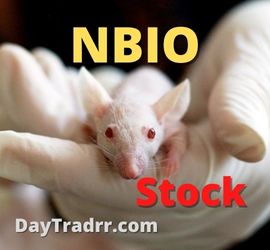NFO Meaning – What Is a New Fund Offer?
 A new fund offer (NFO) is a new fund being offered by an investment company to new subscribers in order to raise funds from public investors. An NFO is the first-basis subscription offer for a new investment vehicle launched by an asset management company (AMC). The offering is launched in the market to raise capital from the public in order to buy securities like shares or bonds or other securities.
A new fund offer (NFO) is a new fund being offered by an investment company to new subscribers in order to raise funds from public investors. An NFO is the first-basis subscription offer for a new investment vehicle launched by an asset management company (AMC). The offering is launched in the market to raise capital from the public in order to buy securities like shares or bonds or other securities.
An NFO is similar to the initial public offer (IPO) of a company as an attempt to raise capital from the public market. NFOs are offered for a stipulated period. This means that the investors opting to invest in these schemes at the offer price can do so in this stipulated period only. After the NFO period, investors can take exposure to these funds only at the prevailing net asset value. Mutual funds are one of the most common new fund offerings marketed by an investment company. The initial subscription offer price for a new fund varies by the fund’s structure.
New Fund Offer (NFO) – A Closer Look
A new fund offering (NFO) is comparable to an initial public offering (IPO). Both are initiatives to raise funds to expand operations. New fund offerings may be supported by strong marketing initiatives designed to encourage investors to purchase fund units. When new fund offerings become public, they frequently have the potential for big gains.
When a new fund is established, it goes to an investment or asset management company for promotion and launch. Depending on the fund, some are given more marketing and publicity than others. As a possible investor in the new fund, you will be able to view the details surrounding its strategy and structure. For example, the types of securities, the fund management, and other corporate information you may require.
The opportunity to subscribe to a new plan is only accessible for a short time. During the pre-defined period, investors may purchase units of the mutual fund scheme. Investors subscribe to the NFO at an offer price that is typically pre-set depending on the particular fund. Once the tenure expires, investors are still able to purchase fund units at the set price. However, this set price is usually higher than the offer price. In general, NFO subscribers have an opportunity to generate considerably higher gains after listing.
New Fund Offer (NFO) – Types
The most typical sort of new fund offering is for mutual funds. New mutual fund offers may be open-end or closed-end. An NFO is also used to launch new exchange-traded funds.
Open-End Fund
An open-end fund will announce fresh shares for purchase on a specific launch day in a new fund offer. The number of shares available in open-end funds is unlimited. On their initial launch date and subsequently, these funds can be purchased and sold through a brokerage firm. The fund firm and/or fund company affiliates administer the shares, which do not trade on an exchange. Net asset values for open-end mutual funds are reported on a daily basis after the market closes. Fund companies might create new fund offerings for new strategies or add new share classes to existing ones.
Closed-End Fund
Closed-end funds only issue a limited number of shares during their new fund offer. As a result, they are frequently among the most heavily marketed new fund issuances. These funds are traded on an exchange and have daily price quotes available throughout the day. Closed-end funds can be purchased online or through a brokerage firm on the day they are launched.
Exchange-Traded Fund
An NFO is also used to introduce new exchange-traded funds (ETFs). An exchange-traded fund is a sort of investment fund that may be traded publicly on the stock exchange. Exchange-traded funds generally track a specific commodity or index. When you buy an ETF, you obtain a collection of assets that you may buy and sell during market hours. Simply put, stocks are shares in individual firms, whereas ETFs are bundled shares in numerous companies packaged together. ETFs can help minimize your risk and exposure while also diversifying your portfolio.
NFO Launches and Alerts
New fund offers are not always widely announced. This can make them difficult to locate. Companies must file a new fund offering with the Securities and Exchange Commission (SEC). This requirement at least offers one method of tracking. Investors who want to learn about new fund offerings before they start may receive alerts from their brokerage provider. News publications and news aggregators are also good starting places to find out about new fund offerings.
Scanning the websites of investing or asset management firms might help you locate fresh fund offers to invest in. NFOs will almost certainly be published ahead of time. This allows investors may decide whether or not to invest and add the fund to their portfolio. Your broker is always a good starting point. You can normally invest in an NFO through your regular brokerage.
Advantages and Disadvantages of a New Fund Offer (NFO)
Investing in a new mutual fund can be an exciting way to diversify your portfolio. However, there are several issues you should be aware of before doing so. Many investment firms start a new fund when the market is strong. They know investors are eager to join in on the latest new business or area of the economy. Just because a particular technology or industry is popular now does not guarantee that it will stay that way. Furthermore, a new fund offer is sometimes accompanied by a higher expense ratio than usual.
One of the most obvious risks of investing in an NFO is that the fund has no track record of success or failure. Some bullish investors may see this as a potential for enormous profits. But, there is a significant danger in investing in a fund whose performance cannot be tracked.
Pros
- Diversification for Your Portfolio – Investing in a variety of assets and funds may help you reduce your overall investment risk. Investing in a new fund offering allows you to diversify your investments even further.
- Funds May Be Safer Investments Than Stocks – Stocks are one of the riskiest assets, despite traditionally producing larger returns. For individuals who do not want to take such a large risk, investing in a fund may be a preferable option.
Cons
- Minimum Subscription Offer – Purchasing an NFO entails investing money into a minimum subscription offer. This means that in order to participate in the NFO, you must purchase a certain number of units. Units are similar to shares. You may need to invest more money than you would if you purchased a regular stock or other security.
- New Funds May Come With Higher Risk Compared to Existing Funds – Funds are frequently perceived as less hazardous than stocks. However, a new fund offer is still new because the fund does not yet exist. As a result, there is no track record of how it has previously performed. Always scrutinize the new fund’s expenditure ratio. Because it is new, it may wind up being more expensive than an existing fund, costing you more.
- Investing in the Investment Company, Not the Individual Fund – When you invest in an NFO, you are giving money to an asset management business. It is essential that you do your homework and checked out the company before giving over your money. It is critical to conduct research about the company in order to assess its profitability.
New Fund Offer NFO – FAQs
NFO meaning – What is it?
NFO meaning: A new fund offer, or NFO, is when an investing firm offers investors the opportunity to purchase shares of a new fund, such as a mutual fund. It is analogous to an initial public offering (IPO), where a person can invest money in a brand new company by purchasing stock in the company. Similarly, a new fund offer, or NFO, is an investment company’s first offering of an open-end, closed-end, or exchange-traded fund to investors.
Is It Safe to Invest in an NFO?
Investing in an NFO may provide the possibility of big rewards. However, investors should be wary of putting their money into a fund with no demonstrated track record of performance. The NFO lacks a prior track record. So, the investor must rely on other funds in the AMC to gauge their expectations. Should you make an investment? Investing in an NFO is risky. But then, nothing in the markets is without risk.
How Do I Choose an NFO?
Investors can learn about new fund launches by reading press releases from various investing firms. There is no foolproof strategy for predicting the success of a fund, especially a new one. Before investing in an NFO, investors should look for a lower expense ratio. Also, research the success of the investment company’s other funds. When you invest in an NFO, you are giving your money and trust to an asset management company. Therefore, do your homework and check out the company before turning over your money. It is critical to conduct research about the company in order to assess its prior profitability.
Up Next – What Is Dark Pool Trading?
 Dark pool trading takes place on privately organized financial forums or exchanges. Here, large traders conduct securities transactions without public disclosure until after the trades are executed and cleared. Dark pools enable institutional investors to trade without risk until the trade is complete. These private pools are a sort of alternative trading system (ATS). Dark pool trading allows select investors to place huge orders and trade without publicly disclosing their intentions while looking for a buyer or seller. Private dark pools were created largely to assist block trading by institutional investors. Large volumes could potentially disrupt markets with saturated supply resulting in poor prices for these trades.
Dark pool trading takes place on privately organized financial forums or exchanges. Here, large traders conduct securities transactions without public disclosure until after the trades are executed and cleared. Dark pools enable institutional investors to trade without risk until the trade is complete. These private pools are a sort of alternative trading system (ATS). Dark pool trading allows select investors to place huge orders and trade without publicly disclosing their intentions while looking for a buyer or seller. Private dark pools were created largely to assist block trading by institutional investors. Large volumes could potentially disrupt markets with saturated supply resulting in poor prices for these trades.
Dark pools are sometimes portrayed negatively, although they serve a legitimate purpose. They allow massive trades to take place without disrupting the overall market. However, their lack of transparency exposes them to potential conflicts of interest on the part of their owners. Moreover, they can attract predatory trading activities from some high-frequency traders.




